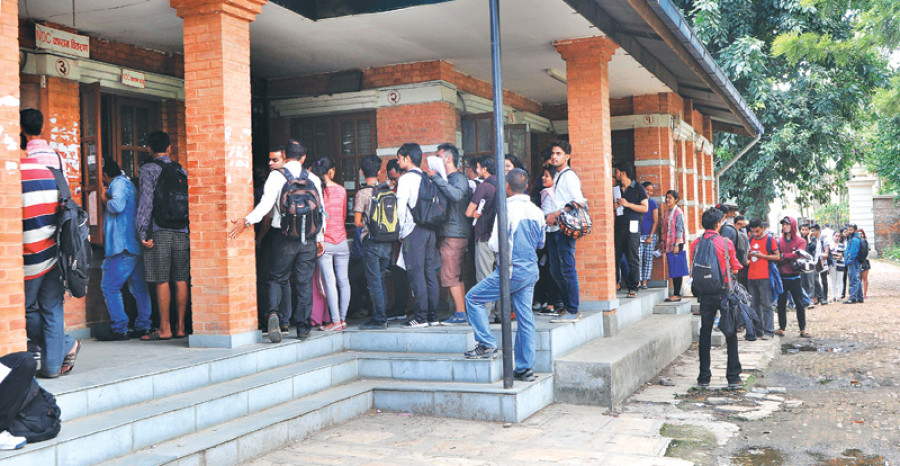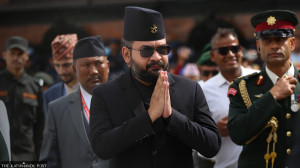Miscellaneous
Leaving on a jet plane
Travelling abroad for education has evolved into a global phenomenon, with institutions around the world actively looking to diversify their student body with students from around the world.
Binod Ghimire
Travelling abroad for education has evolved into a global phenomenon, with institutions around the world actively looking to diversify their student body with students from around the world. In that context, the trend of Nepali students seeking greener academic pastures abroad has also been on the upswing. In the past five years alone, the number of students from Nepal enrolling in international academic institutions has increased three-fold.
According to the Department of Scholarships at the Ministry of Education, which issues the No Objection Certificates (NOC) to Nepali students prior to their departure, record-high number of students have acquired the certificate in the current fiscal year. In first 10 months of the current fiscal year (from mid-July to mid-May) 31,928 students have obtained the clearance certificate for 76 countries across the globe.
The number of students who obtained the NOC stood at 11,912 in the 2011-12. The figure doubled to 28,126 students in 2013-14. In last five years, a total of 119,161 students have left the country for higher education. With the lack of proper data at the Department of Immigration, NOC letters are taken as reference while calculating the number of students opting for foreign degrees. Over 80 percent of the students who acquire the letters leave the country.
According to Ministry records, 102 students, on average, are leaving Nepal daily to pursue higher education. The number, however, does not include those who are studying in India. When students studying in India are taken into account, the average number of students departing jumps to 150 students daily. The Education Consultancy Association Nepal (ECAN) speculates that over 15,000 student travel to various parts of India for the higher study each year.
A rough estimation suggests that a Nepali student, on average, spends Rs 1 million while studying aboard. When summed together, Nepal has lost Rs 1.19 trillion rupees in Capital Flight during the five year period—which is more than the total annual budget for upcoming fiscal year 2016-17, which stands at Rs 1.048 trillion. The figure is higher when the expenditures of those travelling to India are included.
“The world has become a global village. It is quite natural that Nepali students travel abroad for study,” Mahesh Babu Timalsina, managing director at Kangaroo Education Foundation, said, referring to a report by the Organisation for Economic Co-operation and Development (OECD). The 2014 report indicates that around 5 million students travelled abroad for education in 2014, up from just 2 million in 2000. The document projects the number to increase to 8 million by 2025. The OECD report also shows that Asian students make up 53 percent of the total foreign students, with China, India and South Korea being the top three nations.
Educational consultancies claim that political instability, lack of quality education providers in the country and the allure of foreign degrees fuel the number of outbound Nepali students, while financial security and high job placement rate are other driving factors.
Education consultancies speculate that the number of outbound students is likely to increase in the future as the quota for the IELTS test in Nepal is increasing soon. Bishnu Hari Pandey, ECAN vice-chairman, confirmed that the quota for the British Counil-run IELTS tests is being increased to 36,000 per year from 26,000 at present.
Starting next month, IDP Education (Australia) will also resume conducting the test. The IDP (Australia) had been running IELTS tests in Nepal for a decade, before halting operations three years ago. An IELTS score is mandatory for enrollment in many countries, including Australia.
“Going abroad is not a challenge; the real challenge is bringing the students back so that the country can benefit from their knowledge, experience and exposure,” said Suprabhat Bhandari, chairperson of the Guardian Association Nepal.





 19.12°C Kathmandu
19.12°C Kathmandu










